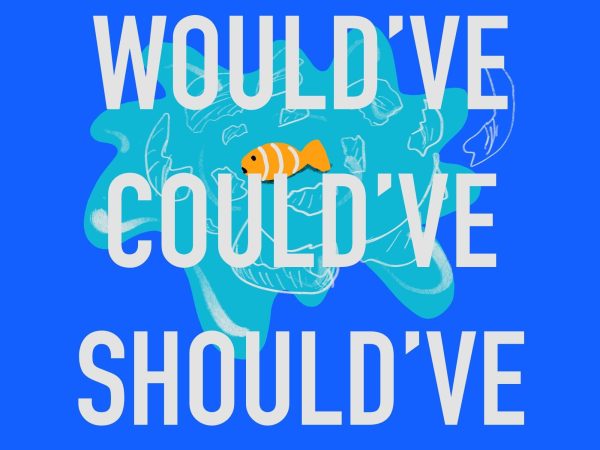I should’ve done something. I would’ve put an end to it. Things could’ve been different.
These thoughts haunt me when I lie in bed trying to fall asleep. I tell myself to close my eyes and turn my brain off. But instead, I recall the worst possible moments of my life in a stampede of detail, their occurrence ranging anywhere between the day before to seven years ago.
People can’t help but ponder an alternate outcome for negative moments in their lives, whether it’s something small, like spilling a drink on themselves in public, or something more serious, like running a red light and hitting a pedestrian.

While moving on and accepting the outcome of the situation is the healthy thing to do, it’s human nature to replay moments of trauma, fear or embarrassment. People subconsciously contemplate the numerous what-ifs and the impact each one would’ve had.
Each replay is an attempt to rewrite history in a version where they got it right, where things went differently.
You imagine the words you would’ve said, the actions you could’ve taken, the choices you should’ve made.
My question is, then: Why didn’t you?
If you truly wanted to, you would’ve — but you didn’t.
Saying “would’ve, could’ve, should’ve” isn’t just about regret or an imagined reality — it’s a coping mechanism.
These three words are simply a means of soothing oneself when reflecting on an unfortunate circumstance, especially when it didn’t go the desired way.
According to a research article by psychologists Kai Epstude and Neal J. Roese, when something catastrophic happens, our minds need to make sense of it and attempt to find comfort in chaos.
For example, if the driver who hit the pedestrian tells themself they should’ve pressed on the brakes and stopped at the red light, it creates a softer version of reality. An excuse is implemented — one that dims the severity of the perpetrator’s actions.
The driver feels as though they possess less blame, as if it wasn’t entirely their fault for breaking the law and hitting someone because there could’ve been a different result — a result where no one was killed. This reassures the driver that maybe, in another life, they almost got it right.
It’s comforting to know we were almost close enough — just one decision, one second or one inch away from a better outcome. The thought that another version of the story could even exist makes the pain more bearable. It lets us hold onto the illusion of possibility, which can be easier than accepting finality.
However, the issue is that the same survival tactic that helps people cope can easily turn into a denial of reality. A lie.
“Would’ve, could’ve, should’ve” becomes a script people hide behind — a version of events that didn’t happen. The more people repeat what they would’ve done, the more they start to believe it, until it replaces the truth altogether. The line between falsehood and reality blurs.
But denying the truth doesn’t change the facts. One can say a hundred times they would’ve done something differently, but the fact remains that they didn’t. Too much coping turns into avoidance. Instead of owning up to what actually happened, people exploit the fantasy of what didn’t.
Rather than taking accountability or just simply apologizing, people use “would’ve, could’ve, should’ve” as the apology. So close, but intention doesn’t quite count for something after the fact. It’s emotional camouflage — guilt dressed up as empathy.
This supposed apology is a way for people to reposition themselves as the misunderstood victim rather than the person at fault. Instead of taking responsibility, people settle for hypotheticals.
And that’s where the danger lies: “Would’ve, could’ve, should’ve” may begin as a coping mechanism, but it quickly becomes a shield.
These three words keep people from confronting the reality of what they’ve done and prevent them from apologizing and from changing. Saying I could’ve done better feels easier than admitting I didn’t. It’s the difference between understanding a mistake and learning from it.
The harsh reality is saying “would’ve, could’ve, should’ve” doesn’t change the past. These words don’t un-spill a drink or bring someone back to life. Sometimes life unfolds exactly how it’s supposed to — no matter how much we wish otherwise.
Facing the truth is not easy, but it’s the most honest option. People need to own up to their actions and learn from their mistakes. Because no amount of “would’ve, could’ve, should’ve” can rewrite the past.






















































































































